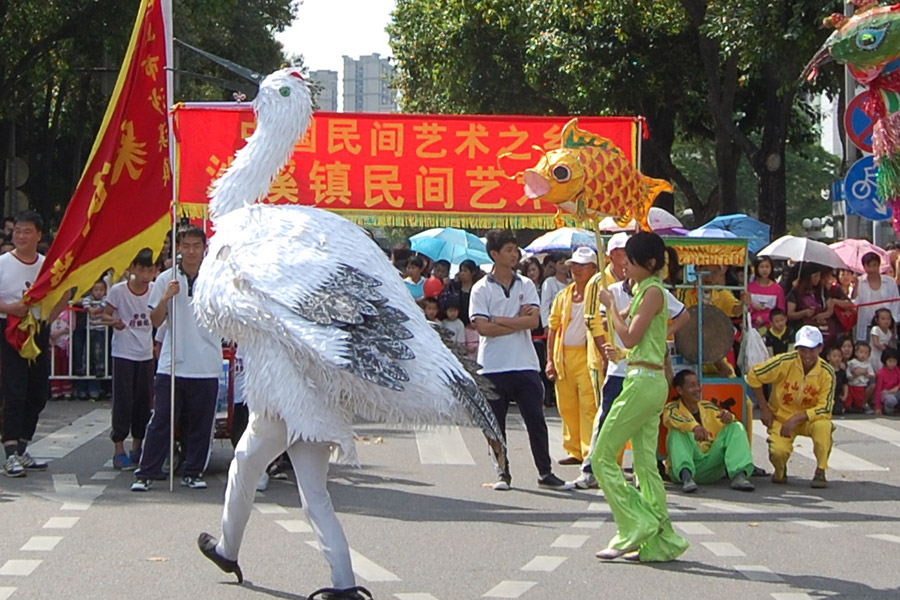Bright lights


Xiaolan's enthusiasm for chrysanthemums dates back some 700 years. People fleeing conflict around the time of the collapse of the Song Dynasty (960-1279) were attracted by fields of blooming chrysanthemums in Xiaolan back then, and decided to reside in the village, which later developed into a town.
During the Ming and Qing dynasties (1368-1911), locals held festivals to celebrate the flower in different ways, including artwork, poetry, feasts, competitions and performances.
In 2006, the Xiaolan Chrysanthemum Festival was inscribed on an early list of national-level intangible cultural heritage issued by the State Council, China's Cabinet.
While for most people, the chrysanthemum is an ornamental plant to be admired, the residents of Xiaolan also use it for cooking in chicken, fish, pork, beef and even snake dishes.
A blend of history and modern life is another highlight of the lantern fair, according to Zhu.
For instance, a set of five ceremonial column-shaped lanterns-with the relevant Chinese characters on them-symbolizes the city's goals, and covers an area of around 25 meters in diameter.
When hiking to a hill at the center of Sun Yat-sen Memorial Park, visi-tors can see giant lanterns shaped in the form of Cantonese Opera performers or featuring local delicacies. Cantonese cuisine is one thing that a tourist should not miss, and there could be more surprises if you taste food tailored for Lunar New Year.
Zha jian dui, a fried sweet dish made of glutinous rice ball coated with sesame seeds, is considered a "lucky food" and is prepared on the first day of Lunar New Year. It can be as big as a basketball or as small as a table tennis ball.
"To make this, you need to use a strainer to move the rice balls in circles in very hot oil. As the ingredients expand, the action is related to the Chinese character fa, which means fortune," explains Yang Guanhao, a local culture expert from Shaxi town in Zhongshan.
"For us, it's an auspicious food that will bring in gold and silver."
Other such snacks include jin qian quan, a deep-fried pastry resembling an ancient copper coin, which is believed to bring money, and nian gao, a glutinous rice-made dessert with its name having a similar pronunciation as "getting a promotion in a new year" in Chinese.


















